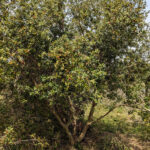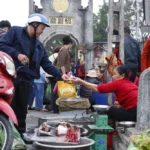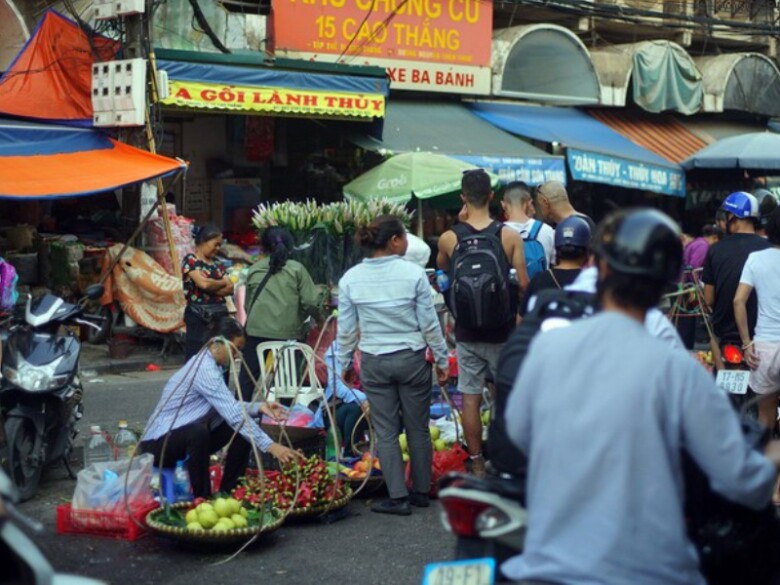
The Name’s Origin
The name “Bac Qua” stems from the market’s geographical location. In the past, farmers from the north bank of the Red River would transport their agricultural produce across the river to trade at this market. “Bac” refers to the north bank of the Red River, while “Qua” signifies the act of moving goods from the north to the south bank. Over time, Bac Qua market has retained its location and flourished as a bustling hub, deeply rooted in Hanoi’s cultural heritage.
Due to its proximity and association with Dong Xuan market, locals often refer to both markets collectively as the Dong Xuan – Bac Qua market.
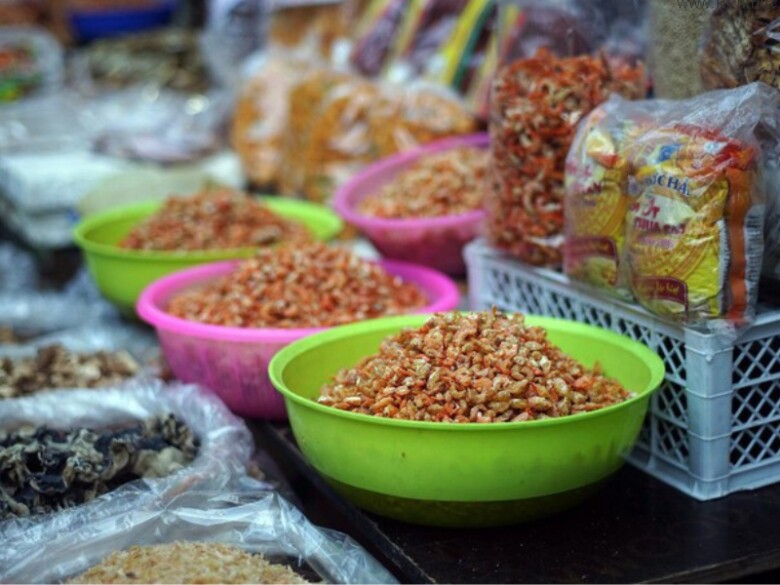
Signature Products
Today, Bac Qua market primarily operates on two main streets: Nguyen Thien Thuat and Cao Thang. Each area boasts its unique specialties:
Nguyen Thien Thuat Street: This area is a hub for dried goods, offering a wide range of products such as shrimp, fish, bamboo shoots, mushrooms, and an array of specialty spices. These items are sourced from various regions, catering to the diverse culinary needs of Hanoi’s residents.
Cao Thang Street: This section of the market specializes in fresh agricultural produce, including vegetables, roots, and fruits sourced from the outskirts of Hanoi and neighboring provinces.
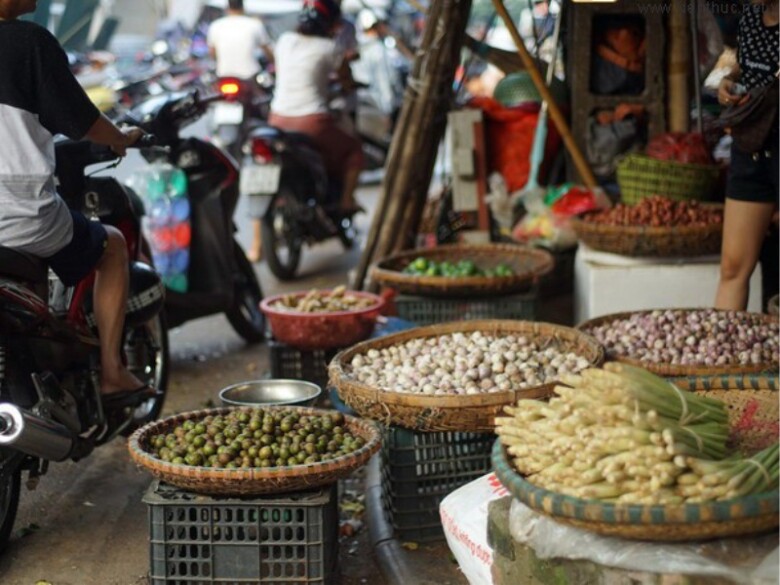
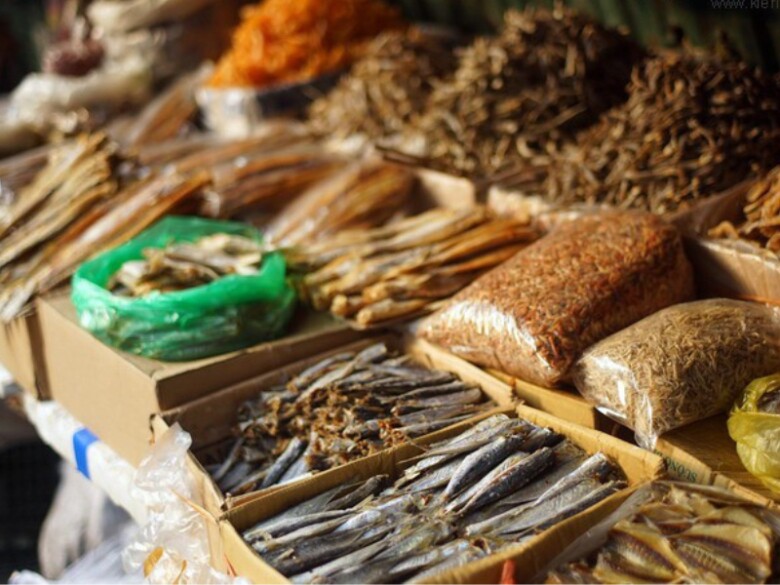
Despite the passage of over half a century, Bac Qua market retains its rustic charm and bustling Hanoi vibe. Beyond being a commercial hub, the market is intertwined with the daily lives of the locals. The bustling traders, lively atmosphere, and fragrant aromas of specialty foods create an unmistakable character unique to Bac Qua market.
One distinctive feature of this market is that shoppers can make purchases directly from their motorbikes due to its location on bustling streets.
Shopping Tips for Bac Qua Market
To ensure the best shopping experience at Bac Qua market, keep the following tips in mind:
– Price Comparison: Since multiple traders offer similar goods, it’s wise to survey prices from several stalls before making a purchase.
– Bargain Respectfully: Bargaining is a customary practice in traditional markets, but remember to maintain a polite and cheerful attitude during negotiations.
– Early Bird Gets the Worm: For the freshest produce, arrive early, especially if you’re after seafood, meat, or vegetables.
– Caution on the Streets: Exercise caution when walking or stopping your motorbike to shop, as the market is located on busy streets.
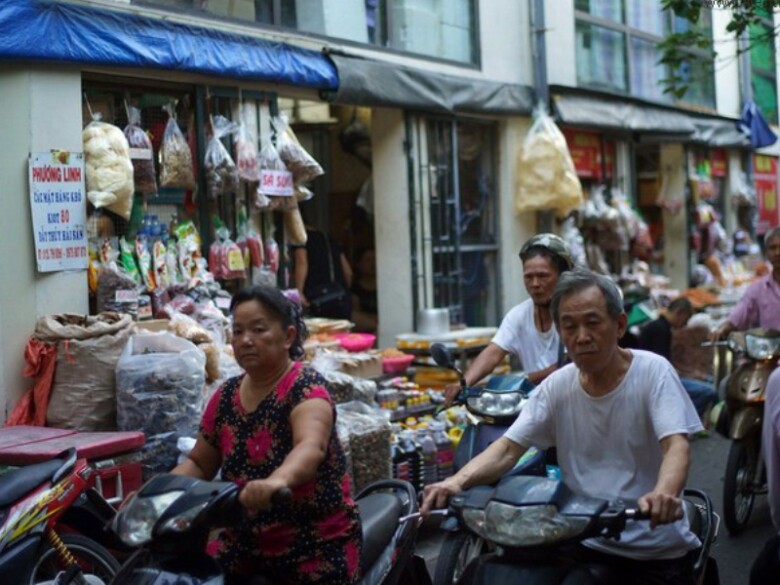
Bac Qua market attracts not only locals but also captivates tourists visiting Hanoi. Here, visitors can immerse themselves in the traditional shopping culture, indulge in specialty foods, and experience the authentic pace of local life.
With a blend of old-world charm and modern vibrancy, Bac Qua market remains an integral part of Hanoi’s economic and cultural landscape, preserving traditional values in the heart of this flourishing city.
The Mystical Second-Day-of-Tet Market in Hai Duong: A Unique Tradition Where Haggling is Forbidden.
The annual Dinh Ca Market, held on the second day of Lunar New Year in Hai Duong, is a unique trading and spiritual event. Unlike typical markets, there is no haggling or bargaining here; instead, it is a place of goodwill and auspicious wishes for the coming year. The market holds a special significance for both sellers and buyers, who come together to seek blessings and fortune for a prosperous new year ahead.
The Midnight Harvest: A Delicate Delicacy Illuminated.
After the sun sets, the locals in the western provinces of Vietnam embark on a unique nocturnal endeavor. They gather in groups and venture out into the night to forage for a delicacy known as “mushroom termite.” These prized fungi, sprouting from termite mounds, are sought-after ingredients for upscale restaurants and gourmet chefs. The locals’ nocturnal expeditions are not merely recreational; they are a means to earn a substantial income by supplying this exotic ingredient to discerning chefs and gourmet enthusiasts.

























